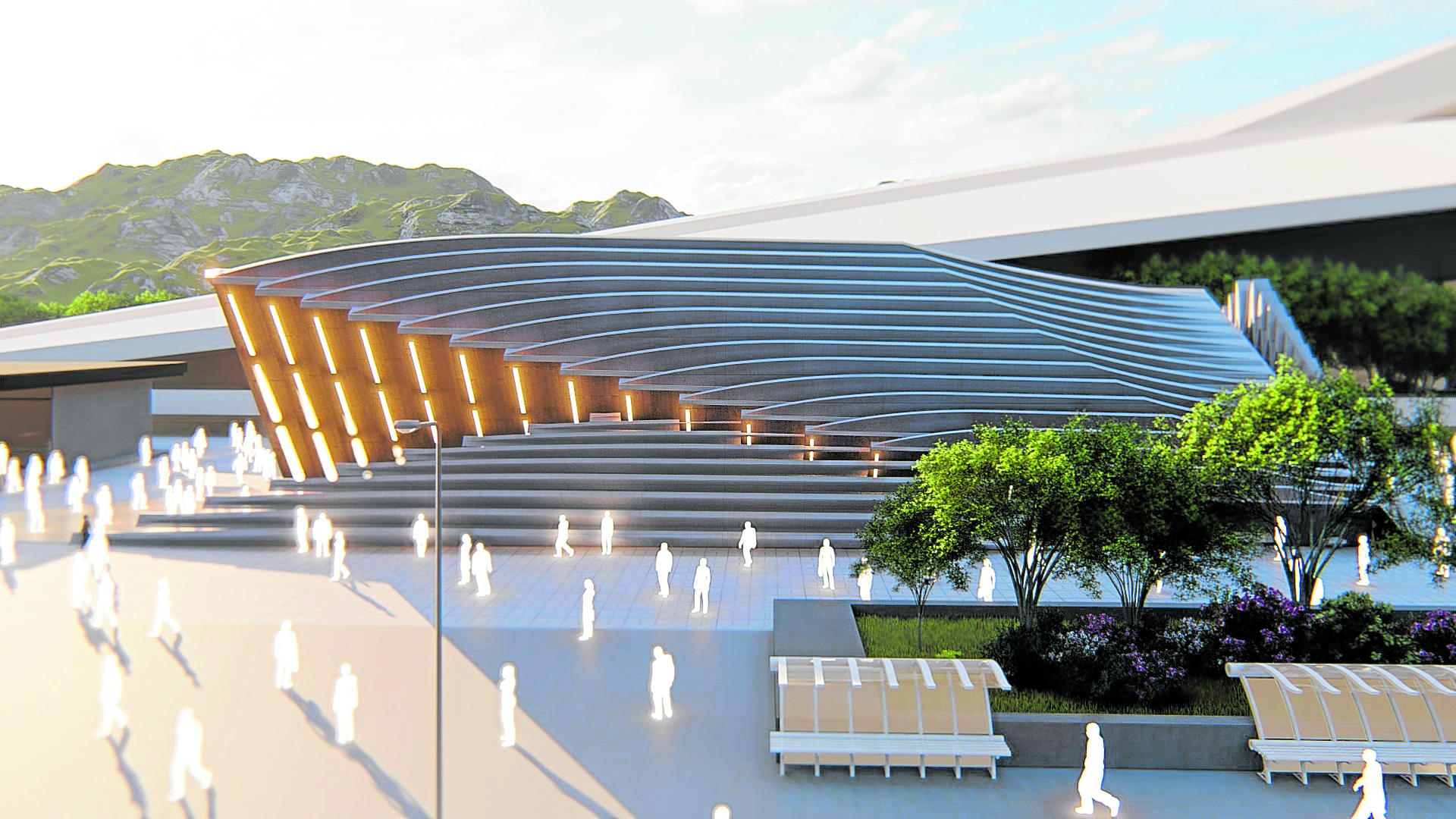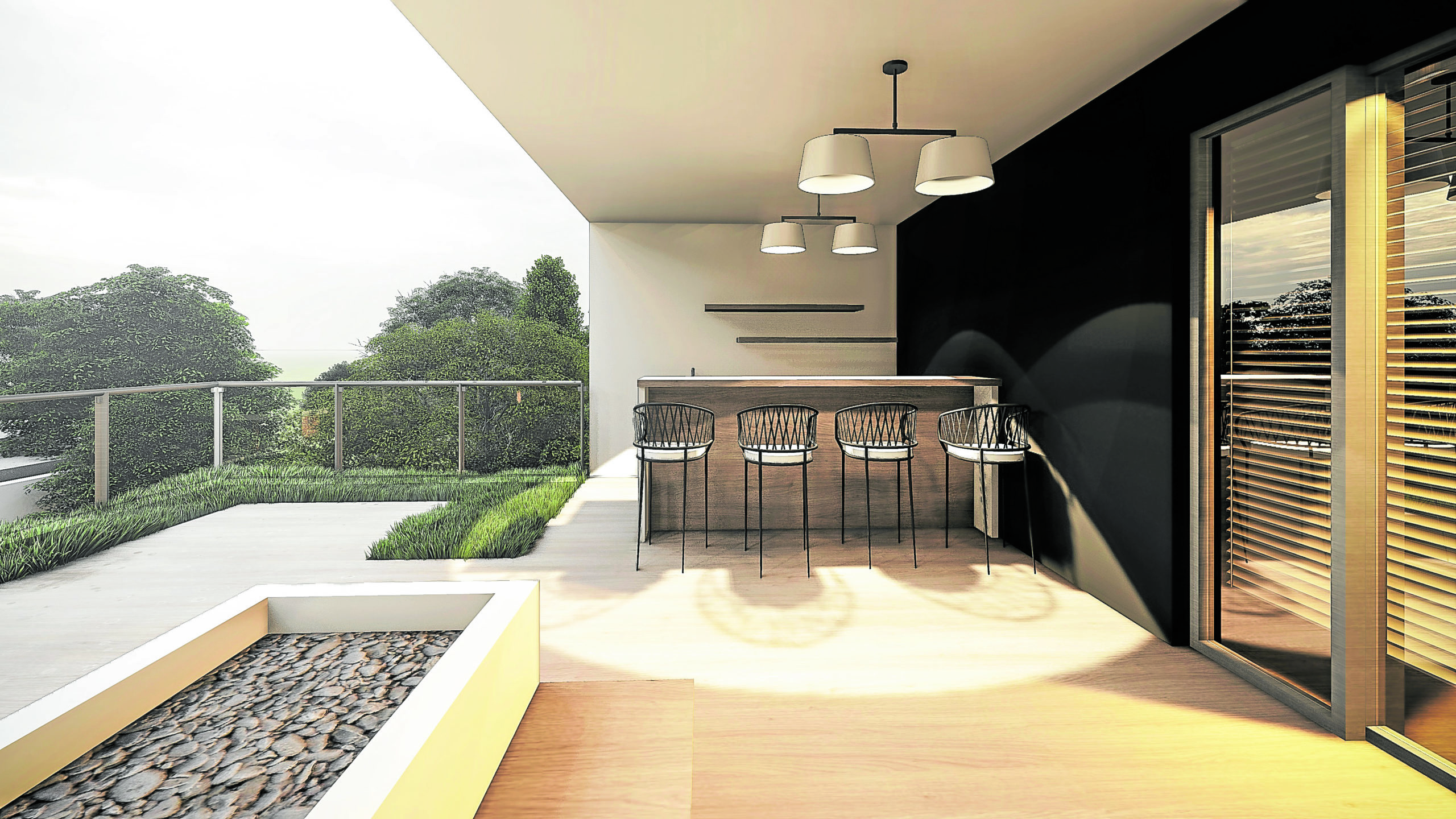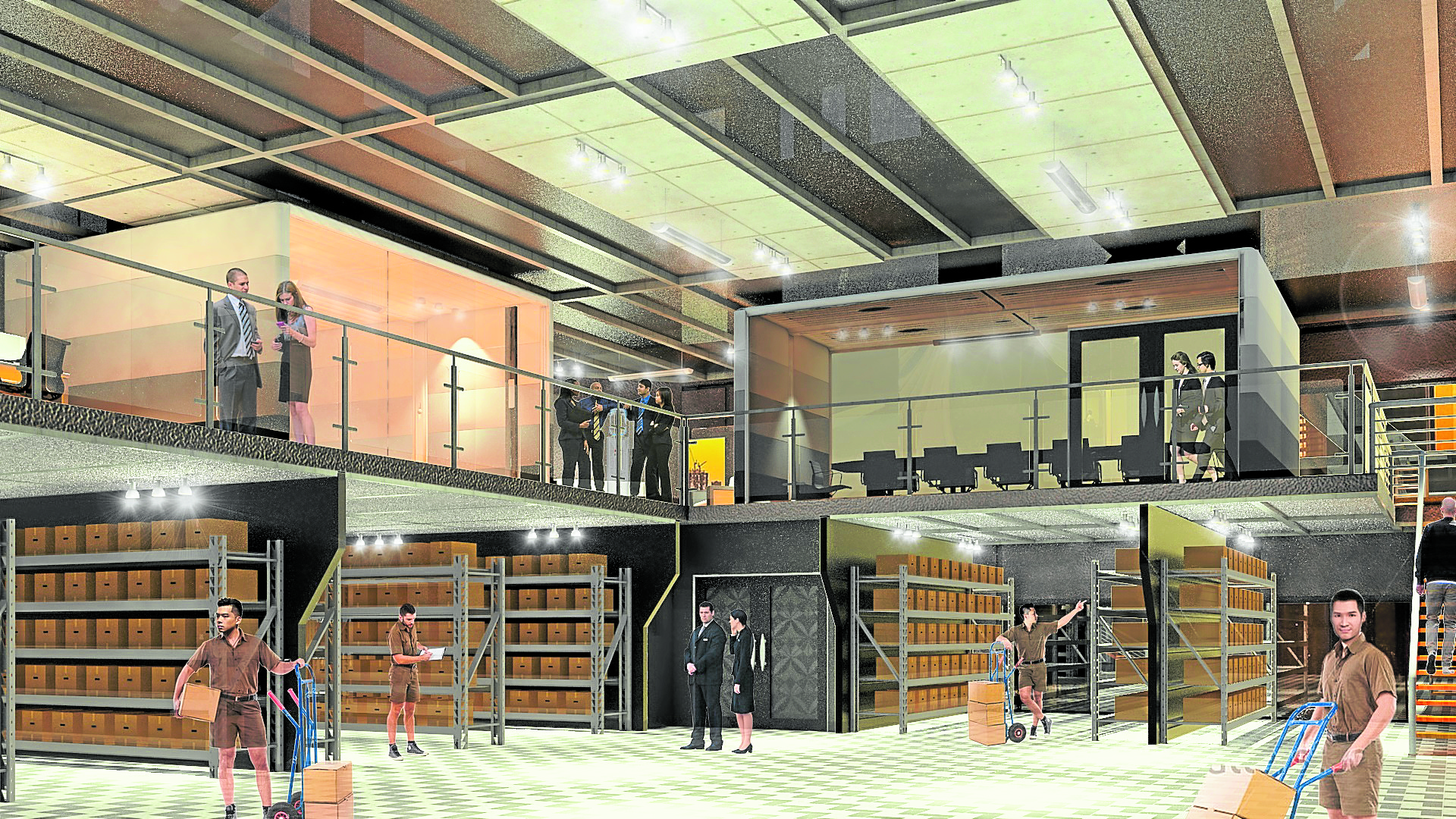Architecture, interior design trends that will shape 2021
There is no doubt that the year 2020 has been a year of realization. What used to be normal is now considered a health hazard.
How 2020 suddenly changed the way people think, move and act called for drastic spatial responses on how designers reinvent communities—from isolation-friendly houses, stores partitioned with dividers, to public places with social nodes distributed no closer than 6 feet. We have entered an era of disconnected connection, of challenging our ways to digitally and spatially connect at a time when the public is encouraged to “socialize with caution.”
As we bid the pandemic-driven 2020 goodbye and enter 2021 with new hope and zest for life, check out these architectural and interior design trends to watch out for within the next few months.
Industrial motifs in residential architecture
Think warehouses, exposed metal bars, brick walls and worn-out wood flooring, then combine these elements to form a house. A crowd-pleaser, charming yet restrained, the industrial-style home converts the working parts of a building such as beams, columns, ducts, flanges and pipes into its primary aesthetic. This is a celebration of the modernist eye for efficiency and practicality with a largely masculine overtone.
Although the industrial style works especially well for rehabilitating outdated structures with existing elements such as original floorboards, exposed beams and paneled walls, these features can also be recreated to mimic the “machine for living” aesthetic this style is well-known for.
Smart and assisted living will be ‘in’
Expect 2021 to bring smart homes and home automation to the next level as you may be able to integrate your smart devices into a centralized system to control home appliances, temperature, lighting and security systems with a touch of a button or a voice command.
Here’s a vision of how a fully-automated smart home may look like. Opening your front door can be hands-free thanks to your smartphone’s Bluetooth-enabled door-unlocking feature. Your lights and thermostat set themselves after you enter your home. Watering your garden will no longer be a time-consuming chore, as hot, dry conditions can automatically activate your sprinklers. At night, you can sleep soundly knowing you have a smart home security system.
Open spaces holding multiple activities at once
Public and residential spaces are being designed in response to the pandemic’s demand for heightened social distancing.
On a public scale, the increased requirement on social distancing calls for street expansions, including bike lanes and sidewalks. Multi-functional, adaptable public spaces are also encouraged, such as parking areas that can double as temporary food distribution hubs to decongest existing markets. By allowing such spaces to host different activities for retail activities and wellness sessions, a break from the self-confinements will be a relief for the community.
For residences, open, multi-functional spaces allow users to accommodate more activities indoors. Among the most commonly integrated spaces are the working area and the kitchen; the living area and the terrace; as well as the office dens and bedroom.
Kitchen becomes the star of every home
With urban settings getting more compact, open and modular kitchens are here to stay. Aside from increased dimensions, kitchens connected to living and dining areas will also prevail in 2021. To a certain degree, it may even require open-to-sky extensions for smoking meats or brewing beverages.
Another element that can become part of the new normal is organic home gardening. While it is unfortunate that the pandemic spiked food prices and threatened local nutritional security, it has also allowed the public to regain interest in home-grown fresh produce.
Bathroom becomes a cleansing haven
In 2021, bathrooms will not only be a space for personal care and hygiene. Instead, this will be a place for rejuvenation, where one disconnects from the contaminants of the outside world.
The shower becomes the main protagonist of home bathroom design, with additional elements such as a sauna, a hammock or a whirlpool that can be added to magnify its getaway ambiance. When it comes to finishes, complementing the calm and relaxing vibe of the home bathroom is an equally soft and calming palette of frostings and lots of daylight.
Different shades of white
The popularity of white has long been established and this will remain in 2021. Different shades of white, either on their own or combined with other colors, can provide natural luminosity—thus visually expanding and decluttering the space.
Repurposing outdated sites
As the world strives for sustainability, bypassing the wasteful and time-consuming process of demolition and fleet management is possible, thanks to retrofitting and adaptive reuse. Old structures can be converted into cafés, abandoned projects into cloud kitchens, and ghost malls into an apartment or a new medical facility.
Reusing an old building is the most sustainable thing you can do to a property. Aside from immense benefits given by a lower carbon footprint, repurposed buildings can enjoy increased energy savings, reduced construction costs and a valued sense of heritage.
Next-level minimalism
The new minimalism for 2021 branches out of the textbook definition of the architectural term itself. It instead translates simple forms using modern, avant-garde elements.
In contrast to the minimalist movement of the early 2000s which focuses on white and clean geometry, new minimalism focuses on the need to simplify. This includes use of warm, neutral colors, natural fabrics and materials, fewer décor, polished surfaces and sculptural shapes. High-quality materials that ensure thermal and acoustic insulation will be the norm and minimalism geared towards environmental and economic profit will prevail.
In 2021, the cold, restrictive and plain aesthetic of minimalism will be updated to an organic, relaxed vibe that piques just enough interest without taking any of the occupants’ energy away from too much visual and spatial clutter.
Open, transparent workspaces
The world is moving towards a transparent society. Businesses become more open to the public, and people become more concerned with what happens behind closed doors. Clear workspaces leave nothing hidden, eventually generating trust between the public and establishments.
Amid COVID-19, however, the same office layout approach became a communal Petri dish, the antithesis of social distancing. But open office layouts need not be drastically changed. Instead, they need to be more open again—that is, by reducing occupant load and inviting natural ventilation.
A well-designed open office layout has 30 percent of people at their desks, with the rest spread in other parts of the space. Expect to have Plexiglass and clear dividers in offices as people tend to feel safe with these barriers around them.
Well-ventilated spaces
Lessons from the previous year when people were advised to stay at home and observe social distancing encouraged many to design the most accommodating, most comfortable outdoor spaces. In 2021, expect the invasion of landscape design to connect with the interiors, incorporating elements such as air filtering, sophisticated sunlight harvesting, biosphere for plants, outdoor lounges and activity areas.
Novel construction techniques
2020 has been an eventful year when it comes to experimentation—and the construction industry is not an exemption. While you might have heard of BIM, prefabricated construction and drone technologies this year, future construction trends geared in 2021 can be just as exciting.
In 2021, expect the rise of new materials such as bleach resistant surfaces, technologies such as drones in site inspection, architectural translations via 3D printing, modular construction, simulations, the study of fluid dynamics in air distribution and VDC (Virtual Design and Construction).
Passive, ecological, green
While passive houses started as a trend, architectural solutions geared towards passive, ecological and green solutions are bound to become a standard in 2021. Passive design has become a life philosophy that seeks to understand how different relationships with the environment should unfold.
Passive architecture for 2021 may include energy-efficient insulation, balanced external and internal proportions, multi-paned windows, a heat recovery ventilator system, renewable energies and well-oriented plans. Although combinations may vary, the passive design will have a similar goal of maximizing available resources while minimizing energy consumption.
Advanced sanitation methods
As the new normal highlights the importance of sanitation, the role of the HVAC industry as the primary medium of implementing the latest forms of UV systems will be more recognized than ever.
Despite the variety of architectural and interior design trends that will become popular next year, 2021 is poised to be the new age of automation and sanitation. These are newfound aesthetic considerations added to what used to be of mere functionality and minimalism.
Whether these trends will come and go or will stay for good is something that only time can tell. Until then, we can only wait how the community will adapt to new protocols for habitable spaces and the responses of awakened building designs to health care fragility.
The author manages his own architectural and technology studio, helping local and international clients design and develop a unique architecture for the future of residences, hotels, condominium towers, museums, commercial and mixed-use township developments with a pursuit for the meta-modern in the next Philippine urban landscape.



